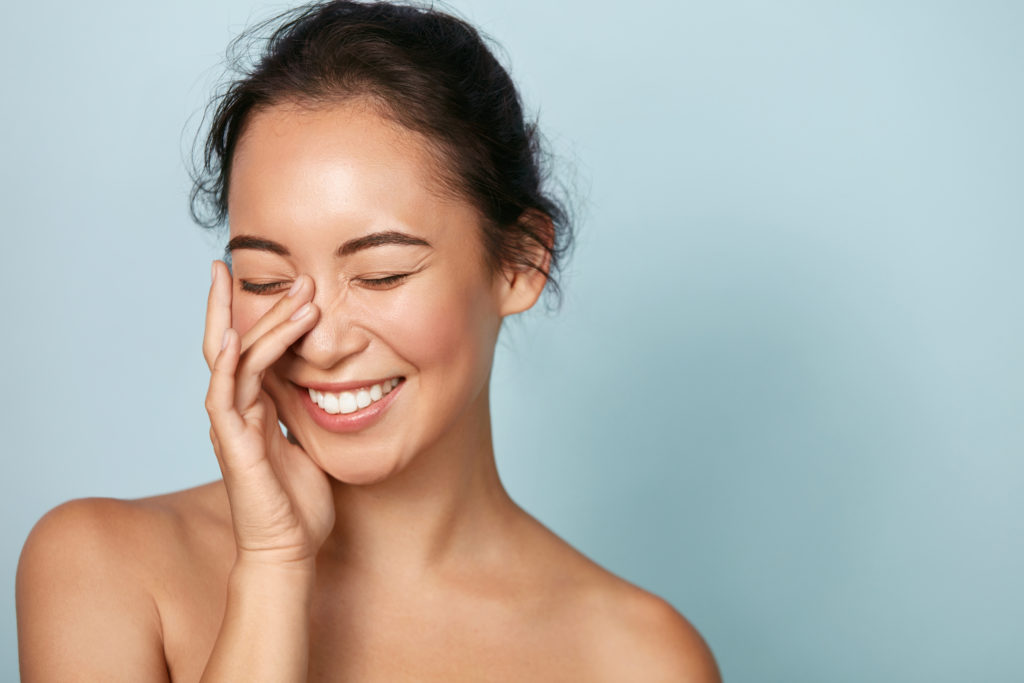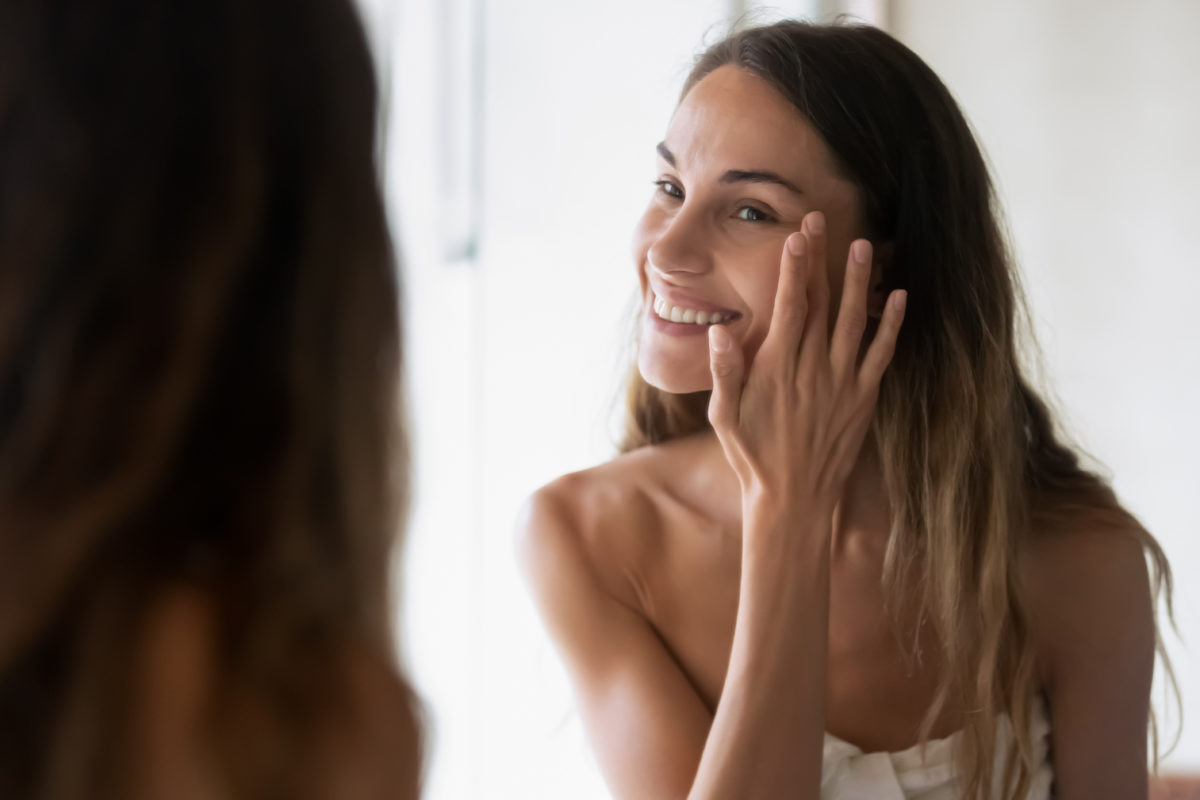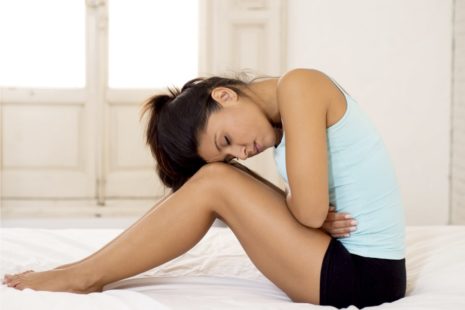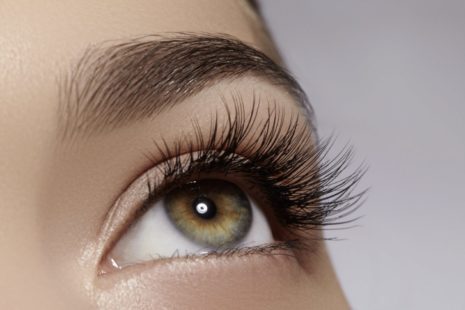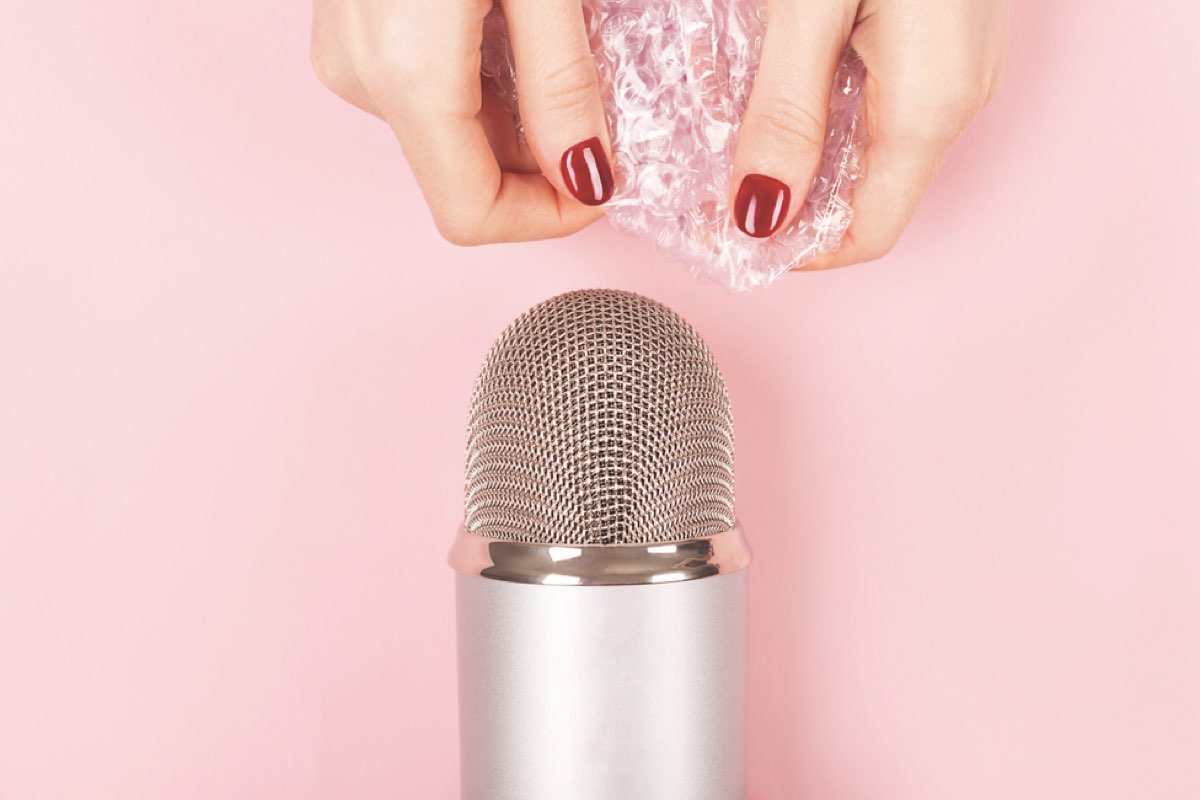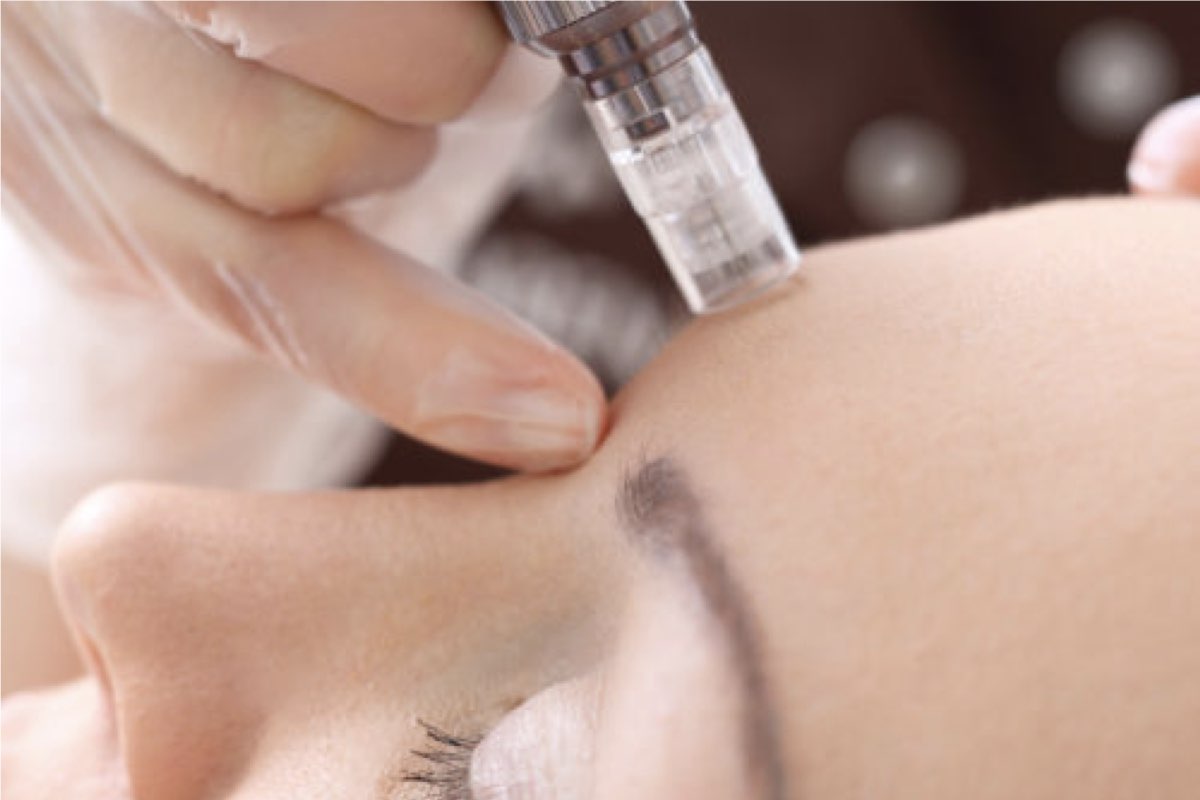Hormones impact more than just our mood. They play a huge part in the look and feel of our skin. You might think your skin looks drab because it’s that time of the month – it’s dry because you’re over tired or you’ve been hitting it hard at the gym and now you’ve broken out. Whatever the skin issue, it’s likely that your hormones are at work. A better understanding of how hormones affect our skin can take our skincare routines to the next level. However, keeping up with hormones can be difficult as they change with age, menstrual cycles, diet and lifestyle habits. DOSE writer Demi investigates what hormonal skin is, which hormones cause skin issues and how we can fix these issues by making lifestyle changes.
What is hormonal skin?
Hormonal skin relates to changes and problems in the skin that develop in response to hormonal changes. There are lots of reasons why our skin might be affected by hormones, whether we’re on our period, when we’re sleep deprived or when we work out. It’s an area that has given rise to beauty brands like Faace. Their products such as ‘Tired Faace‘, ‘Period Faace‘ and ‘Sweaty Faace‘ target a specific skin concern, with a cocktail of active ingredients to help the skin tackle the cycle of hormonal ups and downs.
The most common association with hormonal skin is of course, “hormonal acne”. This usually appears on the lower part of the face around the cheeks and jawline. It can strike at any time, manifesting as teenage breakouts or fully fledged adult acne, and they’re the kind of spots that are definitely not meant for squeezing.
What hormones cause skin issues?
Skin issue – Hormonal Acne
Androgens
These are male hormones such as testosterone that affect hair growth, voice change and libido. Androgens help prevent the skin from going dry. Hormonal acne can occur as a result of a rise in androgens like testosterone. This can trigger higher sebum production and inflammation, and cause hair follicles to become blocked by bacteria.
Oestrogen
Oestrogen helps our skin to stay hydrated. It supports our skin’s oil production and elasticity. Hormonal acne is likely due to a drop in oestrogen levels and/or an increase in androgen hormones.
Skin issue – Pigmentation
Progesterone
This hormone improves circulation and decreases inflammation. Along with oestrogen and androgens, fluctuations of progesterone can lead to acne and pigmentation.
Skin issue – Dry skin
Melatonin
Melatonin is a hormone released by the pineal gland at night and regulates the sleep–wake cycle. It repairs skin cell damage from external elements such as air pollution and sun exposure. So when we are sleep deprived, it’s no wonder that our skin can appear dry and lacklustre.
Skin issue – Stressed skin
Cortisol
High levels of cortisol can cause an imbalance in other hormones and even result in acne. If your stress to rest ratio is out of whack and you’re burning the candles at both ends, cortisol is likely to have an effect on your skin. This is why sometimes people experience breakouts when exercising.
Skin issue – Breakouts
Insulin
If you are noticing breakouts after consuming alcohol or large amounts of sugar then the hormone insulin is at work. Insulin regulates the body’s sugar levels. When the body is insulin resistant (when the body can’t use glucose from the blood for energy so the pancreas makes more insulin and over time, blood sugar levels go up), various skin conditions can occur, such as skin tags or acne.
How to fix skin issues by making your hormones happy
Dr Booth explains that despite our hormones changing as we age; it is still possible to keep our hormones balanced and happy with lifestyle changes, which in turn will have a positive effect on our skin.
Start your day with phytoestrogen-packed foods – Phytoestrogens are found in plants – think sunflower seeds, nuts, flax seeds, nut butters and chickpeas. Phytoestrogens can work like oestrogen in your body and positively affect your skin.
Avoid sugar to prevent hormonal skin – Insulin can seriously imbalance your hormones. Avoiding sugar out right is difficult, so try cutting down on sugars gradually and watch and feel your body change – not just your skin. Remember that alcohol is packed with sugar too so avoid if you can.
De-stress – We all know that stress shows in our skin. Increased stress can also effect our insulin levels and result in imbalanced hormones. This can result in breakouts and acne. It’s important to take a few minutes out of each day to de-stress through things like meditation, walking or anything that works for you to feel more zen. Remember, keep that stress to rest ratio in check.
Stay hydrated – Mild dehydration mainly results from too much caffeine and stress. Skin needs water to maintain elasticity, so drink up and avoid excess caffeine. Find out how much water you should drink a day and stick to it. It’ll become a habit in no time.
Prioritise sleep – Remember that melatonin is a hormone that repairs skin cell damage from external elements such as air pollution and sun when we sleep. Try and get your 8 hours if possible and reap the skincare benefits.
Supplements to support your skin hormone balance:
Some of us have a list of supplements we take every morning and some may be treating your skin without you even knowing. We’ve listed some of the supplements you can take for a simple way to keep your skin hormones happy:
- Vitamin D, 1000 IU a day – for healthy tissue and collagen, Vitamin D also increases mood and metabolism.
- Omega 3 oils, 1000 to 2000 mg a day – natural lubricants for the skin, eyes and joints. The magic trick for youthful glowing skin. Vegan’s can get their omega 3 fix from flax seeds too.
- Vitamin C, 100 mg a day – supports collagen health, and Vitamin C is a great vitamin to take every day for the skin and general health.
- Biotin, 600 mcg a day – supports cell growth and improves nail and hair health.
- Folic acid, 400 to 800 mcg a day – great for keeping hormones balanced and maintaining collagen health.
Liked this article on “Hormonal Skin: Why It Happens and How Lifestyle Changes Help”? For more skin tips read “Why Green Tea Masks Are Magic For Your Skin”.
Get your weekly DOSE fix here: SIGN UP FOR OUR NEWSLETTER.
